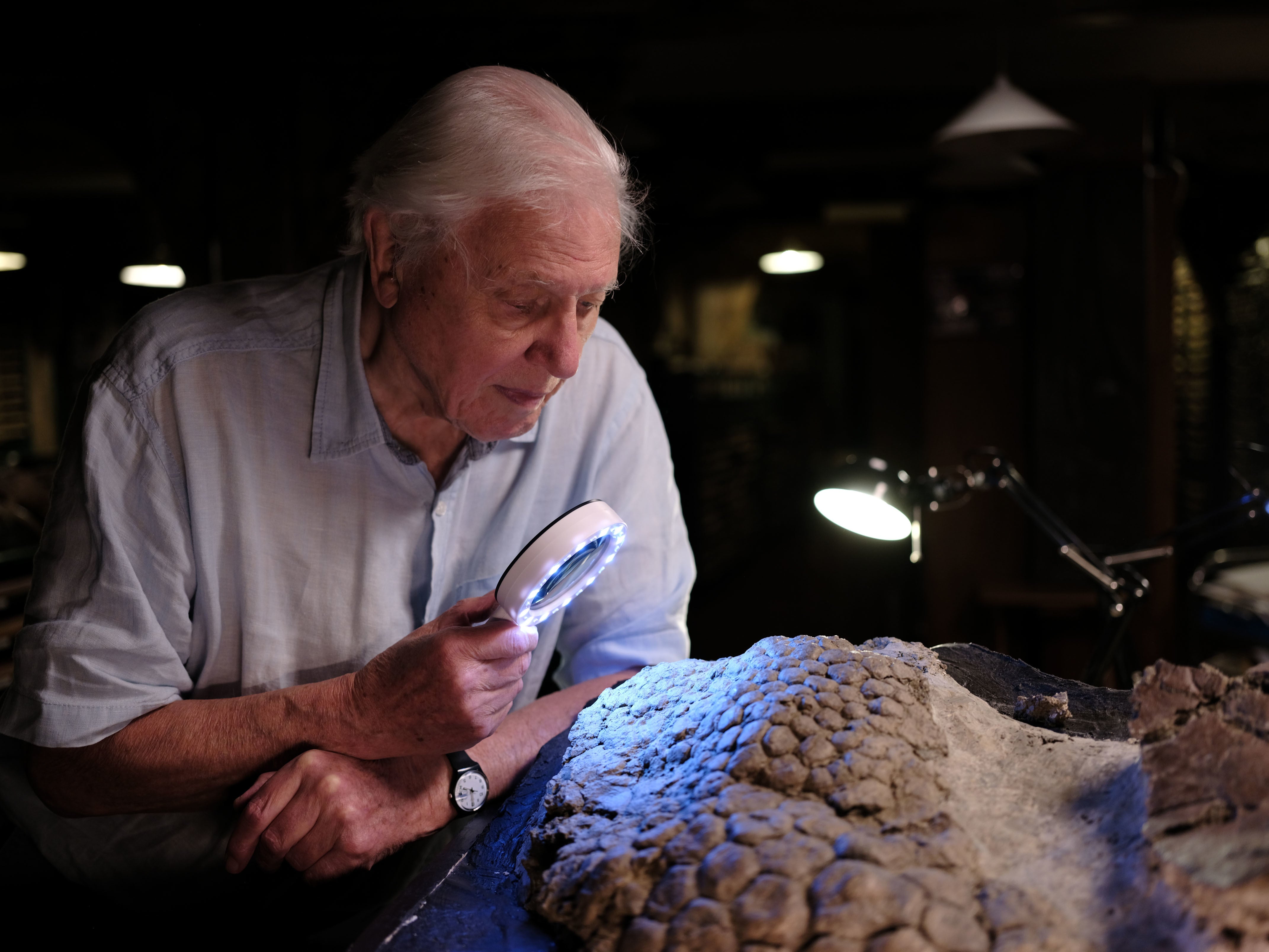David Attenborough: New asteroid evidence provides ‘moment of justification’
The discoveries may be the first direct evidence the dinosaurs were wiped out by an asteroid.

Your support helps us to tell the story
From reproductive rights to climate change to Big Tech, The Independent is on the ground when the story is developing. Whether it's investigating the financials of Elon Musk's pro-Trump PAC or producing our latest documentary, 'The A Word', which shines a light on the American women fighting for reproductive rights, we know how important it is to parse out the facts from the messaging.
At such a critical moment in US history, we need reporters on the ground. Your donation allows us to keep sending journalists to speak to both sides of the story.
The Independent is trusted by Americans across the entire political spectrum. And unlike many other quality news outlets, we choose not to lock Americans out of our reporting and analysis with paywalls. We believe quality journalism should be available to everyone, paid for by those who can afford it.
Your support makes all the difference.Sir David Attenborough has said new evidence that emerged during filming for his new documentary about the last day of the dinosaurs prompted “a moment of justification”.
The broadcaster and naturalist’s latest project highlights fossilised remains of a Thescelosaurus believed by scientists to have been killed by the Chicxulub asteroid 66 million years ago.
A fragment of the rock may also have been found, preserved within a tiny “spherule” of clay, at the Tanis fossil site in North Dakota that the TV show is centred around.
Sir David, who alongside his team was granted exclusive access to the site, said: “The film is about the last day the dinosaurs lived on Earth – and the minute by minute detail of that day.
“We tend to think that the end of a (geological) period extends over decades, if not centuries, and actually the end of a period may vary around the world in different areas.
“But what’s remarkable about this, is that it was one astonishingly huge event that was worldwide.
“An object the size of Mount Everest hit the Earth and that was the end of the Cretaceous – and that’s an extraordinary thing to happen.
“And of course it’s extraordinary too because it caused the end of the dinosaurs. And the life on this planet had to restart.”
Sir David, 95, recalled the “electric moment” when tests showed the chemical profile of a “spherule” matched that of the asteroid.
“It was a moment of justification for the whole thing really,” he said.
The broadcaster said information gleaned from the work of the scientists made the extinction event “very, very vivid indeed”.
He added: “Because when you see the spherules in the gills of the fish it is extraordinary to understand the nature of that evidence, it is extraordinary to hold that in your hand and say ‘this spherule fell within hours of the asteroid impact’.
“This is evidence of the event that caused 75% of species on earth to disappear. And you have a heart of flint not have it beat just a little faster when you’re faced with that sort of thing.”
The documentary will see Sir David, palaeontologist Robert DePalma and BBC Studios cameras exploring the Tanis site over three years.
Special visual effects will transport Sir David back in time to the late Cretaceous period to witness the creatures who lived at Tanis, before recreating the events of the last day of the dinosaurs.
Dinosaurs: The Final Day with Sir David Attenborough will be broadcast on BBC One on April 15.